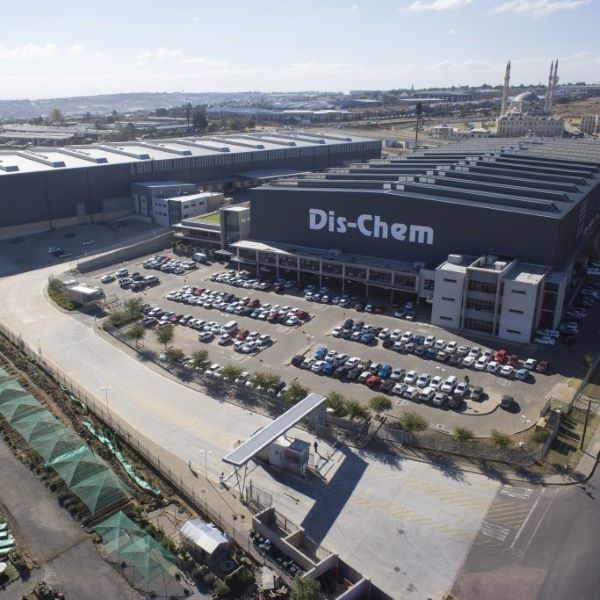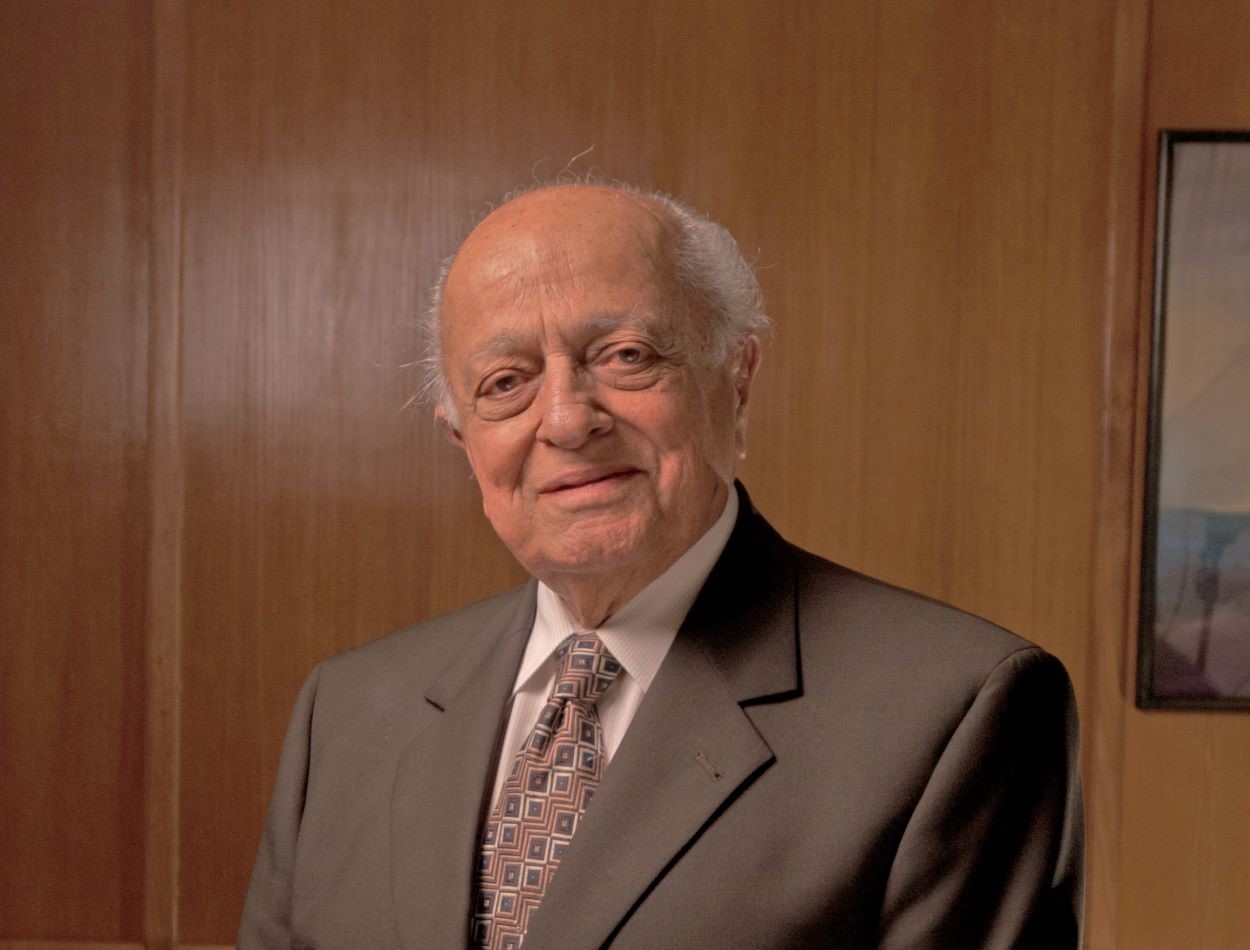The past few years have seen Ivan and Lynette Saltzman reduce their stake in Dis-Chem from 52.7% shareholding to just 29.31% coupled with Ivan stepping down from the CEO’s position in a well-executed succession plan.
The couple has also sold to Dis-Chem several real estates, in the form of Dis-Chem head office and distribution centers, that were previously leased from their associated companies.
In 3 years, the Saltzman family has cashed out approximately US$ 600 million from the business they worked so hard to grow over the past 45 years.
Their remaining 29% stake is valued at about US$ 430 million based on the company’s 30th April 2024 JSE market capitation.
Ranked at number 91 on the 2023 Financial Times’ list of Africa’s Fastest Growing Companies, Dis-Chem has grown from a single-store family business to Southern Africa’s second largest retail pharmacy chain, after Clicks.
Contents
The building of an empire
The journey to the billion-dollar empire started in 1972 in a science class at the Johannesburg School of Pharmacy, now part of the University of the Witwatersrand, where Ivan and Lynette met while pursuing a degree in pharmacy.
“We were doing a science experiment and he lent me an eraser or something like that and that’s basically how we met. We started dating quite soon thereafter and we got engaged in our final year.”
says Lynette
The two graduated in 1974, wed in May 1975, and joined the job market, both working as pharmacists at different entities. Ivan worked at a small pharmacy store in Mondeor, south of Johannesburg.
In 1978, Ivan used R 10,000 from his mother to buy out his employer at the 75m2 store and that marked the beginning of the Dis-Chem. The chemist grossed R 84,000 in revenue to break even in its first year of operation.
The same year, Lynette resigned from her job to join Ivan and for the next six years, the two experimented with various ideas to grow the pharmacy store.
They soon adopted a pricing strategy that would make them the most popular chemist store in the neighborhood. They deliberately ensured they offered the same products at unbeatable prices, betting on volume rather than high margins.
“We would go to other stores and check drug prices and then take our prices down. Our customers knew that we were always cheaper. We made sure we had plenty of stock and the concept of a discount pharmacy was born”.
recalls Lynette
Six years later they opened their second store at Randpark Ridge Mall, then a newly built shopping center. Two stores meant bigger orders from suppliers, giving Ivan the leverage to negotiate better prices and enabling Dis-Chem to further strengthen its discount pharmacy model.
The late 1980s would see the Saltzmans introduce another strategy that up to that point was foreign to traditional pharmacy stores.
They diversified their product offerings beyond medicine to include non-pharmaceuticals such as; sports supplements, nutrition products, personal care products, cosmetics, and beauty products.
In 2004, Dis-Chem broke out of its traditional base of Gauteng, beginning a national rollout with a new store in Cape Town.
In 2006, they established the Dis-Chem Foundation, dedicated to supporting health-based charitable causes in South Africa while also strengthening its brand image.
1. A franchising model of its kind
Dis-Chem’s exponential growth gained momentum in 2009, fueled by a franchising model that was unique in the sense that;
- It engaged carefully selected partners in Joint Ventures where the company retained at least 51% ownership of the new stores, while the franchisee could own up to 49%.
- Given the costly nature of establishing and stocking a pharmacy store, it required franchisees to put up just about 25% of their share of the capital while linking them with bank financing for the difference.
- Buoyed by the deregulation of pharmacies making non-pharmacists eligible to own pharmacies, it placed more emphasis on potential franchisees having strong retail credentials rather than being pharmacists. This was because significant sales at the stores were generated from non-pharmaceutical products and franchisees could hire pharmacists to head their dispensary units.
- It emphasized that franchise owners/partners be people who would bring hands-on management to the franchise, and took them on a 6/8-month training program before they opened their own stores.
On the success of the franchising model, Ivan observed;
“The (Dis-Chem franchising) model allows for an owner or manager to take care of the daily function of the store, but with a small degree of individualism so that control still lies at head office. The public would not know whether a specific store is a franchise or not. If we allowed investors, we could’ve had thousands of stores but would be working for someone else. The idea here is that the franchisee works for the company, the company retains 51% to make decisions and control surety, operating standards, lease agreements, set cost, set retail, and service out of the distribution centers to retain buying power through a single supplier.”
Ivan Saltzman


2. Listing on the JSE
In November 2016, after years of turning down offers from private equity investors, Ivan and Lynnette decided to list Dis-Chem on the Johannesburg Stock Exchange.
Then a 100-store chain, Dis-Chem joined the JSE under the Food and Drug Retailers sector offering 238.4 million shares, equating to a 27.5 percent stake in the company.
The listing enabled Dis-Chem to raise about $340 million that the Saltzmans used to recoup some of their investments, reduce Dis-Chem’s debt portfolio, and finance further growth.
3. Strategic Acquisitions
Another of Dis-Chem’s strategies for its rapid expansion was acquisitions of strategic businesses that would improve its bottom line.
In 2013, it purchased a controlling stake in CJ Distribution, essentially entering the wholesale business with CJ serving both Dis-Chem retail pharmacies and third-party stores and hospitals.
CJ Distribution became a fully-owned wholesale division of Dis-Chem in 2016.
In 2020, Dis-Chem spent about US$ 18 million to acquire Medicare Health which operated 49 pharmacies across four provinces, mainly in areas where it was initially underrepresented.
They also acquired a 25% stake in Kaelo Holdings, a health insurance solutions provider that offers gap cover insurance for medical scheme members, and primary healthcare insurance for uninsured South Africans.
In 2021, Dis-Chem made two strategic investments;
- It acquired 87.5% of Healthforce, a clinic management software with telemedicine capabilities for US$ 3.3 million.
- For US$ 30 million, it ventured into the baby products sector by acquiring a 100% stake in Baby City.
4. Technological innovations
Dis-Chem has embraced robotic technology in its warehouses in Midrand, KwaZulu-Natal, Delmas, and the Western Cape where robots are used in wrapping pellets and sorting boxes nonstop, 24 hours a day, 7 days a week.
The stores have also adopted an online ordering concept called Click and Collect, where clients make orders remotely and are notified when their order is ready for collection, significantly reducing waiting times.
Then there is DeliverD, an on-demand delivery service via a Dis-Chem app, with deliveries made within 60 minutes in selected areas.
Succession Planning
Ivan Saltzman served as the company’s CEO for 45 years before he stepped down in June 2023. He was replaced by Rui Manuel Morais, the company’s former Chief Financial Officer who had worked under Ivan for over 10 years.
To strengthen the new executive management’s commitment to the Dis-Chem mission, Morais and the new executive team were offered 32.25 million Dis-Chem ordinary shares – which equates to 3.75% of its issued share capital.
Not without challenges
The Saltzmans have had to contend with several rough patches on Dis-Chem’s journey to a billion-dollar company.
Building the Dis-Chem business empire, while at the same time successfully raising a family of three young boys was a task that sometimes took a toll on the couple, especially on Lynnette.
Lynnette also remembers that as a woman pharmacist in the early 1980s, she had to put up with customers’ negative comments, many of whom assumed that she was an imposter in her husband’s practice. Customers would often tell her that ‘just because you are married to a pharmacist doesn’t make you a pharmacist’.
Other challenges Dis-Chem has had to overcome include; an employee strike, an arson attack that burned their Pretoria store to the ground, and an electrical fault that caused an inferno in their store in Roodepoort.
More recently, a leaked October 2022 memo from then-CEO Ivan to Dis-Chem managers freezing the promotion of white people into management positions caused a public outcry, instigating social media antisemitism attacks given Ivan’s heritage, with calls for a boycott of Dis-Chem and other Jewish businesses.
Ivan’s internal memo was however aimed at avoiding probable Employment Equity Act penalties for not meeting equity targets given that at the time, 89% of Dis-Chem’s top and senior management was composed of white males.
Advice to entrepreneurs
Ivan observes that keeping prices as low as possible without compromising the quality of product offerings has been the magic that has kept the business on an upward trajectory for so many years.
To budding entrepreneurs in the retail space, he advises;
“With volume, you can always make money, a couple of cents here and there, it all adds up, so it’s the volume you’re after.”
Ivan Saltzman






